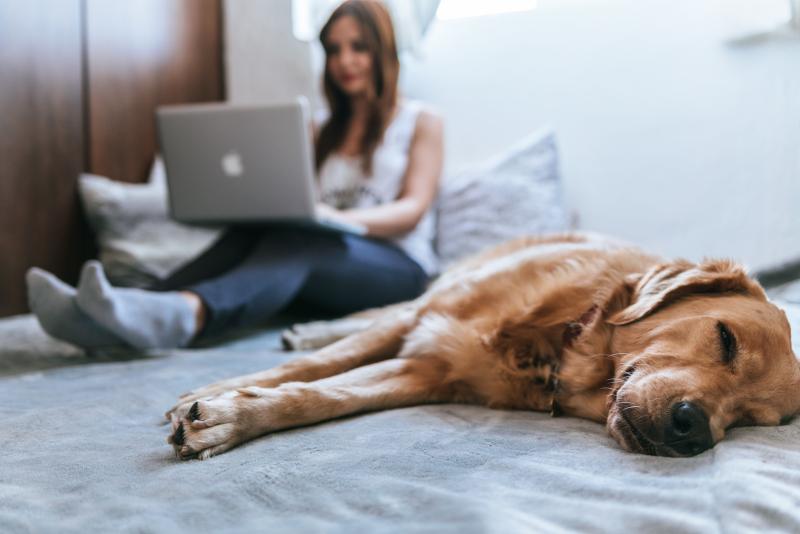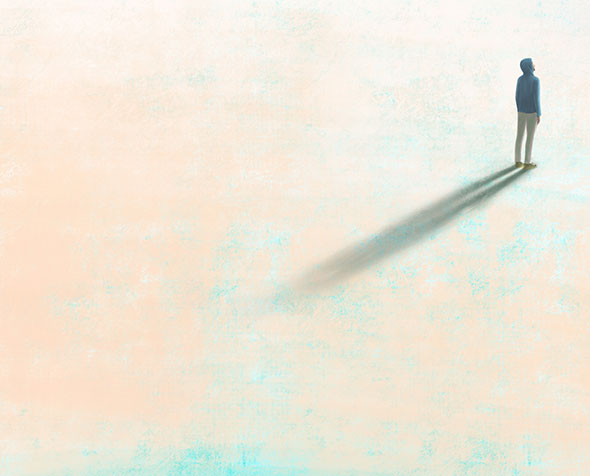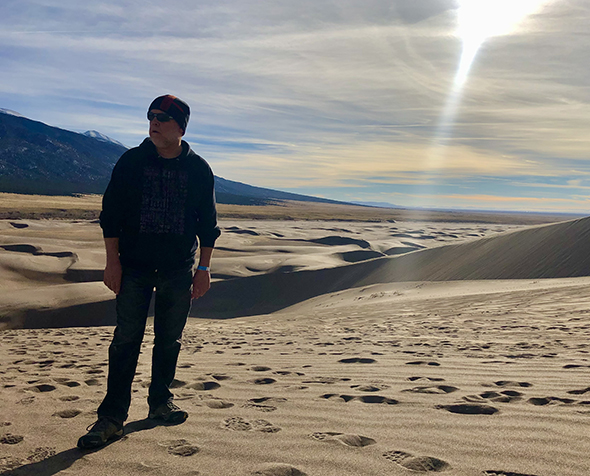History Professor Explains Our Increasingly Close, Complex Relationships with Pets

While humans and pets share a long and storied history, in recent years pets have claimed centerstage in our lives and hearts. They provide emotional and physical support and show up in places like grocery stores, restaurants, hospitals, on airplanes and in offices from which they were banned or otherwise discouraged just a few years ago. Today considered by some more like children, pets continue to transform the way we perceive the human-animal relationship, prompting social change and raising new questions about our responsibilities to them.
University of Denver History Professor Ingrid Tague teaches a class on human-animal relations and wrote a book titled “Animal Companions: Pets and Social Change in 18th-Century British History.” The College of Arts, Humanities & Social Sciences (CAHSS) newsroom asked her to weigh in on the changing relationship with pets, what it says about our culture and the way we view animals in general, and what the future might hold for humans and their pets.
What are your thoughts on our evolving relationship with pets? How did we get here?
As our social circles have narrowed and our human families have gotten smaller, we’ve become more dependent on pets. There’s a kind of snowball effect wherein as more and more people have pets, love their pets and want to spend time with them, there’s more and more pressure on society to accept that and let pets into more places. The more you see people living with their pets in all kinds of new ways, the more you want that too.
I also think the growth in service and support animals has been really important in recognizing the intricate role animals can play in our lives in terms of making human lives better. And, of course, during the pandemic many more people adopted pets, they got closer to their pets than ever and the pets became accustomed to having them around all the time.
You teach a class on human-animal relations. What does your class cover?
It’s an Advanced Seminar (ASEM) for juniors and seniors, and it is organized mostly around a series of different elements in which we engage with animals. There’s a section on meat eating, zoos, hunting and one specifically addressing our relationships with pets.
The idea is to have students think about the ways in which our assumptions about animals have and have not changed over time, but also to call into question some of the ways in which we think that we understand animals and what animals mean to us. [The class also addresses] how things like our attitudes toward hunting, zoos or meat eating reflect both our growing understanding of animals and their needs, and also the fundamental contradictions of our experiences and behaviors. For example, we love animals but we also eat them in huge quantities — that’s weird.
What are your thoughts about how our relationship with pets has evolved over time?
I do think that there is a growing understanding both of the animals’ needs and of our needs from our pets. I think of those terrible scenes when they were evacuating New Orleans during Hurricane Katrina as a transformative moment. All of these people were trying to bring their pets with them on evacuation buses and not being permitted to do so — it created a national conversation.
If we think of pets as family, which we’ve increasingly done over the last 100 years or so, then we actually need to think about treating them as family members. Cities now have evacuation plans for pets that they didn’t have before, and an awareness that people experiencing homelessness may have pets and that shelters need to think about how to accommodate people and their animals.
The other side of that is cities talking about “animal guardians” rather than “pet owners” and “companion animals” rather than “pets” as a way of reframing the language away from ownership and toward a sense of responsibility and care. And again, there are pros and cons to that. On one hand, we have posh hotels giving out gourmet pet snacks and people indulging their pets with food that has led to a growing pet obesity problem. On the other hand, we don’t always remember that you shouldn’t lock pets in a hot car and that you need to provide pets with regular exercise.
And that’s leading to new regulations around pet ownership and some of the less obvious ways in which pet owners are disregarding their animals’ wellbeing?
Yes. Thinking about animals as small, furry humans can lead people out of the best of intentions to do things that are actually harmful. For example, the problem that we have with pet obesity is very real. There are many more overweight and obese animals now than there were 10 or 15 years ago. And I think that’s because people are interested in giving them a good life and good food and not necessarily thinking about what is best for the animal.
There’s also a sense of viewing our pets as there to make our lives better and the pandemic pet situation really highlighted that. All of these people were lonely and decided to get a pet. But once they stopped being lonely, somehow, they thought it was OK to say this isn’t working and I’m going to get rid of this animal.
And then dog trends come and go. For example, French Bulldogs are incredibly fashionable right now but that breeding for particular conformity leads to all kinds of terrible health problems. Sometimes our interests in trends and fashions mean that we make choices that are not in the best interests of the animals but much more about our own interests and priorities.
Do you see this trend toward people having increasingly close bonds with animals and wanting to integrate them into our human lives continuing?
I do. I also think that in the foreseeable future there will be a real movement to try and come up with some kind of legal categorization of pet animals that doesn’t just define them as property but that takes into account their interests and needs. Even though not everyone is at the same place in terms of thinking about what we owe our animals, I think we will see more and more regulations around animal welfare that move beyond what we would consider to be obvious signs of cruelty and neglect into a greater awareness that we owe our animals something like the kind of care that we owe our children. The conversation needs to go beyond just not abusing to giving them real opportunities to thrive.
Should someone who lives in a tiny apartment be allowed to have a giant dog? That’s a legitimate question. If you don’t like exercise, should you be permitted to have a dog that needs to run several miles a day? I think we will see growing conflicts around how to address these kinds of questions along with a growing sense that it’s not just about what is good for us but also what is good for the animals.






